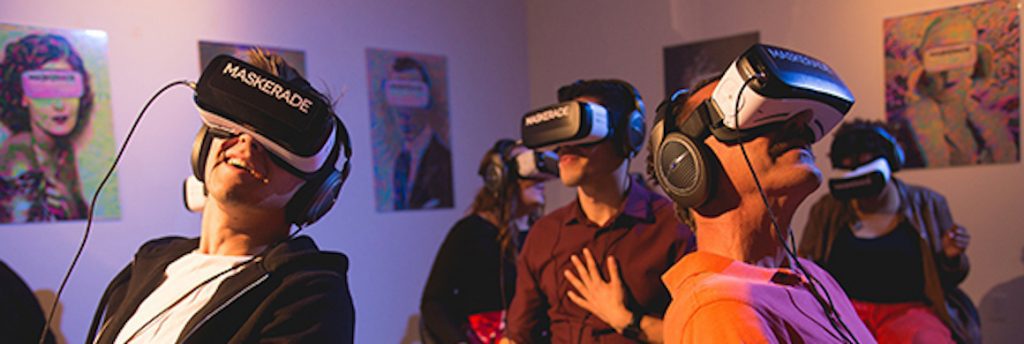MIT Sloan Student Develops Innovative VR Theater Venture

MIT Sloan published an article this week in which Amy MacMillan Bankson talked to Maskerade founder Riley Clubb, MBA ’17.
Maskerade, a new virtual reality pop-up theater venture located in Walla Walla, Washington that gives viewers seated in swivel chairs a “social, synchronized experience” using open-back Samsung Gear VR headsets that allow virtual and “real” audio to intermingle—as well as chatter among the audience.
Clubb explains that Maskerade is predicated on what he feels is an underappreciated value that is gradually disappearing from conversations within the entertainment industry: “Experiencing another reality at the same time as your friends and family.”
Considering the relative novelty of Clubb’s platform, it’s fitting that he and his cohorts chose to screen “Arrival of a Train at La Ciotat,” the legendary French film that offers a “single shot of a train moving toward the camera” that sent audiences screaming from the theater back in 1896, before each Maskerade event.
Clubb explains that he likes to screen that film because he believes “virtual reality is at a similar moment where people take what they are experiencing as real, as if it is actually happening to them.”
Clubb developed the positively psychedelic concept for a “virtual reality production and distribution company that would focus on performing arts and live theater” with fellow MBA students Eileen Parra and Jennifer Lee. The trio worked out their mission as part of Bill Aulet’s New Enterprises class, which is to ultimately design “new physical environments where people can have a premium virtual reality experience that they can’t find at home.”
Despite enthusiastic responses from audiences in Walla Walla, there’s still plenty of work to be done in terms of refining Maskerade’s business model, as Clubb explains: “I learned that the business model for virtual reality exhibition can and should be very different from the current system set up by Hollywood, for reasons related to the experience as well as profitability.”
